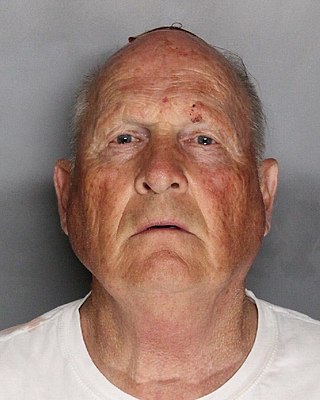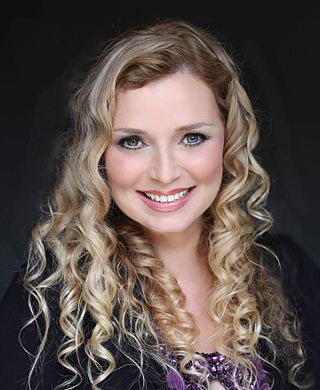Related Research Articles

Paul Kenneth Bernardo, also known as Paul Jason Teale, is a Canadian serial rapist and serial killer dubbed the Scarborough Rapist, the Schoolgirl Killer and, together with his former wife Karla Homolka, one of the Ken and Barbie Killers. He is known for initially committing a series of rapes in Scarborough, Ontario, a district of Toronto, between 1987 and 1990, before committing three murders with Homolka; among these victims was Karla's younger sister, Tammy Homolka.

In scholarly literature and criminology, gang rape, also called serial gang rape, party rape, group rape, or multiple perpetrator rape, is the rape of a single victim by two or more violators. Gang rapes are forged on shared identity, religion, ethnic group, or race. There are multiple motives for serial gang rapes, such as for sexual entitlement, asserting sexual prowess, war, punishment, and, in up to 30% of cases, for targeting racial minorities, religious minorities, or ethnic groups.

Lesbian, gay, bisexual, and transgender (LGBTQ) people in Iran face severe challenges not experienced by non-LGBTQ residents. Sexual activity between members of the same sex is illegal and can be punishable by death, and people can legally change their assigned sex only through sex reassignment surgery. Currently, Iran is the only country confirmed to execute gay people, though death penalty for homosexuality might be enacted in Afghanistan.

Lesbian, gay, bisexual, and transgender (LGBTQ) people in Saudi Arabia face repression and discrimination. The government of Saudi Arabia provides no legal protections for LGBT rights. Both male and female same-sex sexual activity is illegal within the country.

Lesbian, gay, bisexual, and transgender (LGBTQ) people in the Islamic Emirate of Afghanistan face severe challenges not experienced by non-LGBT residents. Afghan members of the LGBT community are forced to keep their gender identity and sexual orientation secret, in fear of violence and the death penalty. The religious nature of the country has limited any opportunity for public discussion, with any mention of homosexuality and related terms deemed taboo.

Lesbian, gay, bisexual, transgender, and queer (LGBTQ) people in Jamaica face legal and social issues not experienced by heterosexual and gender-conforming people. Consensual sexual intercourse between same-sex partners is legally punishable by up to 10 years of imprisonment in the country.
Human rights in the United Arab Emirates (UAE) are substantially restricted. The UAE does not have democratically elected institutions and citizens do not have the right to change their government or form political parties. Activists and academics who criticize the government are detained and imprisoned, and their families are often harassed by the state security apparatus. There are reports of forced disappearances of foreign nationals and Emirati citizens, who have been abducted, detained and tortured in undisclosed locations, and denied the right to a speedy trial and access to counsel during investigations by the UAE government. Human Rights Watch states that Emirati laws maintain capital punishment and discriminate against women, migrants and LGBT individuals.

Joseph James DeAngelo Jr. is an American criminal who committed at least 13 murders, 51 rapes, and 120 burglaries across California between 1974 and 1986. He is responsible for three known separate crime sprees throughout the state, each of which spawned a different nickname in the press, before it became evident that they were committed by the same person.

Lesbian, gay, bisexual and transgender (LGBT) people in the United Arab Emirates face discrimination and legal challenges. Homosexuality is illegal in the United Arab Emirates (UAE) and under the federal criminal provisions, consensual same-sex sexual activity is punishable by imprisonment; extra-marital sexual activity between persons of different sexes is also illegal. In both cases, prosecution will only be brought if a husband or male guardian of one of the participants makes a criminal complaint. The penalty is a minimum of six months imprisonment; no maximum penalty is prescribed, and the court has full discretion to impose any sentence in accordance with the country's constitution.
Statistics on rape and other acts of sexual assault are commonly available in industrialized countries, and have become better documented throughout the world. Inconsistent definitions of rape, different rates of reporting, recording, prosecution and conviction for rape can create controversial statistical disparities, and lead to accusations that many rape statistics are unreliable or misleading.

Rape is a type of sexual assault involving sexual intercourse, or other forms of sexual penetration, carried out against a person without their consent. The act may be carried out by physical force, coercion, abuse of authority, or against a person who is incapable of giving valid consent, such as one who is unconscious, incapacitated, has an intellectual disability, or is below the legal age of consent. The term rape is sometimes casually inaccurately used interchangeably with the term sexual assault.

Human rights in Dubai are based on the Constitution and enacted law, which promise equitable treatment of all people, regardless of race, nationality or social status, per Article 25 of the Constitution of the United Arab Emirates. Despite this, Freedom House has stated: "Extreme forms of self-censorship are widely practiced, particularly regarding issues such as local politics, culture, religion, or any other subject the government deems politically or culturally sensitive. The Dubai Media Free Zone (DMFZ), an area in which foreign media outlets produce print and broadcast material intended for foreign audiences, is the only arena where the press operates with relative freedom."

Brianna Zunino Denison was a college student who was abducted on January 20, 2008, from a friend's house in Reno, Nevada. Her body was discovered on February 15, 2008, in a field near a Reno business park after being raped and murdered. A man named James Biela was convicted of the murder.
According to Human Rights Watch, there is substantial discrimination against women in the United Arab Emirates. The status of women has improved over the years. UAE performs better on metrics of gender equality than many other states in the Gulf region, and it has been making reforms to protect women's rights and empower women in different sectors. Critics describe some of these reforms as window dressing.

The labour force of the United Arab Emirates is primarily made up of foreign temporary workers, most of whom come from the Indian subcontinent and other parts of the Arab World and Asia. There is a sizeable number of Westerners, the majority of them being British and Americans.

Rehtaeh Anne Parsons, was a 17-year-old Cole Harbour District High School student who attempted suicide by hanging at her home in Dartmouth, Nova Scotia, Canada, on April 4, 2013, leading to a coma and the decision to switch her life support machine off on April 7, 2013. Her death has been attributed to online distribution of photos of an alleged gang rape that occurred 17 months prior to her suicide, in November 2011. On a Facebook page set up in tribute to her daughter, Parsons' mother blamed the four boys who allegedly raped and released images of her, the subsequent constant "bullying and messaging and harassment", and the failure of the Canadian justice system, for her daughter's decision to die by suicide.

CeCe Moore is a prominent American genetic genealogist. She has appeared on many TV shows and worked as a genetic genealogy researcher for others such as Finding Your Roots. She has reportedly helped law enforcement agencies in identifying suspects in over 300 cold cases using DNA and genetic genealogy. In May 2020, she began appearing in a prime time ABC television series called The Genetic Detective in which each episode recounts a cold case she helped solve. In addition to her television work, she is known for pioneering the genetic genealogy methodologies used by adoptees and others of unknown origin for identifying biological family.
Véronique Robert was a Franco-Swiss journalist and war correspondent, who died in a Paris hospital on 24 June 2017, at age 54, after being wounded in an explosion in Mosul, Iraq, five days earlier, on 19 June.

Reynhard Tambos Maruli Tua Sinaga is an Indonesian serial rapist who was convicted of 159 sex offences, including 136 rapes of young men, committed in Manchester, England, between 2015 and 2017, where he was living as a student. Sinaga was found guilty of drugging and sexually assaulting 48 men during this period, 44 of whom he raped, some repeatedly, although police believe he was offending for years beforehand. Sinaga was prosecuted in four trials between 2018 and 2020 and was given concurrent life sentences with a minimum term of 30 years; raised to 40 years in December 2020 by the Court of Appeal. The Crown Prosecution Service described Sinaga as being the most prolific rapist in British legal history.
Discrimination against transgender men and transmasculine individuals is sometimes referred to as transandrophobia, anti-transmasculinity, or transmisandry.
References
- 1 2 3 4 Cambanis, Thanassis (31 October 2007). "Dubai and rape: French youth tells his story" . The New York Times . Retrieved 1 June 2021.
- 1 2 Cambanis, Thanassis (1 November 2007). "In Rape Case, a French Youth Takes On Dubai" . The New York Times . ISSN 0362-4331 . Retrieved 25 March 2021.
- ↑ "'They Destroyed Me': French Teen's Rape Case Exposes Dubai's Dark Side". ABC News . 18 February 2009. Retrieved 25 March 2021.
- 1 2 3 4 Walt, Vivienne (5 November 2007). "Outrage Over Dubai Rape Case". Time . ISSN 0040-781X . Retrieved 25 March 2021.
- 1 2 3 4 5 "Le tabou du viol en procès à Dubaï". Le Monde (in French). 8 November 2007. Retrieved 25 March 2021.
- ↑ "Homosexuality in the UAE". Detained in Dubai. Retrieved 25 March 2021.
- 1 2 3 "Raped European Teen Gets Justice In Dubai". CBS News . 12 December 2007. Retrieved 25 March 2021.
- ↑ "Viol à Dubaï: 15 ans de prison". Le Journal du Dimanche (in French). Retrieved 25 March 2021.[ dead link ]